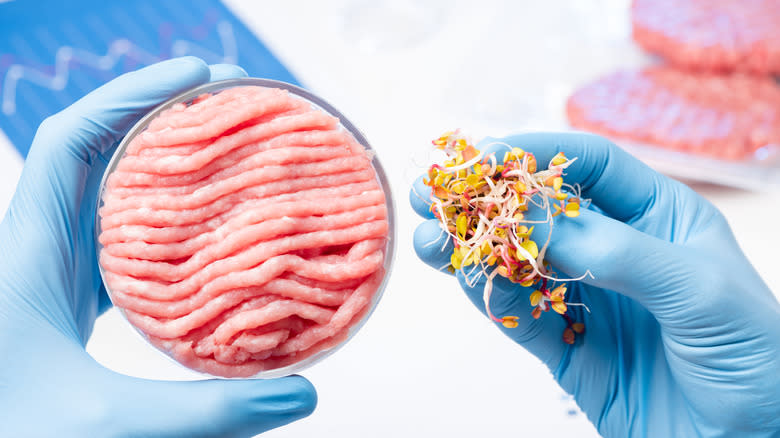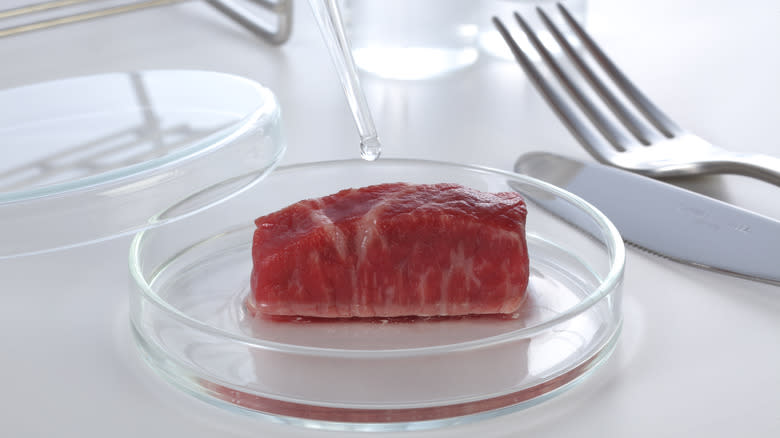What Is Hybrid Meat And How Does It Differ From Plant-Based Varieties?

Despite studies showing that eating meat increases greenhouse gas emissions — and that just a 50% plant-based substitution could cut emissions by a third — projections for global meat consumption are going up. With the plant-based meat industry facing substantial financial hurdles due to a lack of demand, it seems like the human appetite for a real cut of beef isn't going anywhere anytime soon. Thankfully, there's a strong candidate for a long-term solution to the problem: hybrid meat, an alt-meat that combines lab-cultivated animal meat and plant-based substitutes for the most authentic taste possible at a much more sustainable footprint.
You might be asking, why not just pivot to cultivated meat entirely? The lab meat industry has been making major breakthroughs in science and legislation, with 2023 seeing the first FDA approval of cultivated meat. However, despite the fact that the U.S. will most definitely be seeing more cultivated meat products in the future, the harsh truth is that lab-grown meat production is still too expensive to be viable from a consumer perspective. Combining it with plant-based alternatives not only helps lower the price but adds a healthier element via the vegetables included in the plant-based portion: The newly growing hybrid meat industry is looking to tackle the issue by innovating the perfect ratio between taste and affordability to offer an alt-meat that's the best of every world.
Read more: Styles Of Regional BBQ In The US
The Growing Industry Of Hybrid Meat

Currently, the biggest names in the hybrid meat industry are Meatable and Love Handle, two sustainability-focused companies collaborating on the world's first hybrid meat development facility in Singapore. Announced in late 2022, the Future of Meat Innovation Center currently hosts Meatable and Love Handle's projects as well as inviting those of other alt-meat startups and ventures with the ultimate goal of fostering the industry as a whole. So far, the center has seen some incredible progress: According to Meatable, the company now has a means of producing real meat tissue from cells in as little as eight days and will be launching its hybrid meat products in Singapore as early as 2024.
Currently, Meatable has every intention of expanding its operations to the U.S. market. However, with the sharp drop in revenue, setbacks, and loss of consumer faith the alt-meat industry has been battling in the U.S., it's unclear if hybrid meat will be able to make a solid landing and establish itself in the current market. There's also the looming fact that, despite the plant-based element making hybrid meat much cheaper than 100% cultivated meat, it remains a premium-priced product in comparison to conventional meat. Hopefully, we'll be seeing further innovations that'll help bring hybrid meat — as well as completely plant-based alternatives — closer to price parity and onto our tables.
Read the original article on Tasting Table.